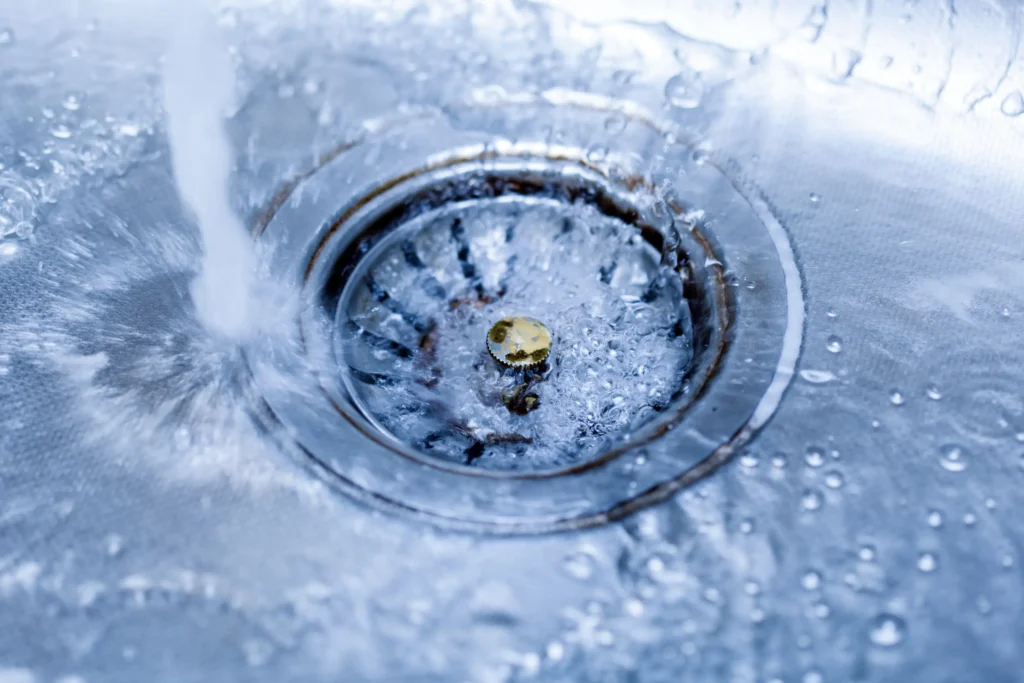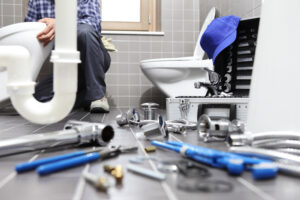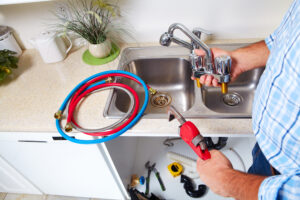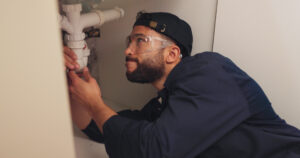The need for water conservation at home has become a serious problem in an era of increased emphasis on environmental sustainability and cost-efficiency.
Saving water not only helps to protect valuable natural resources, but it also considerably lowers household utility expenses.
Plumbing is critical in this endeavor, providing a variety of simple yet efficient tips to help households minimize wastage.
Implementing these simple plumbing solutions might boost cost savings while also benefiting the environment.
This article looks at ten straightforward plumbing solutions that will both lower the expense of your water bill and improve your home’s efficiency.
1. Fix Leaks Sooner

Save on your water bill with these simple tricks.
A lot of water can be wasted every day by leaky faucets, pipes, or toilets, raising utility costs. Not only can you save water by fixing these leaks as soon as you find them, but you also shield your home from potential damage and expensive repairs. Leaks can be found and fixed on a regular basis. This helps to maximize water use, which reduces monthly costs and develops a more sustainable household.
2. Use the Sink Trainer
A strainer serves to minimize the need for expensive and frequent plumbing repairs by keeping hair, food particles and trash from entering the drain. This guarantees that your plumbing system runs smoothly while also preserving proper water flow. As a result, your water cost will noticeably decrease and there will be less water lost due to fewer leaks and obstructions.
3. Water-Saving Toilets
These toilets use far less water each flush than traditional options because they have a design that saves water without sacrificing performance. By using these fixtures instead of others, you can minimize your water usage, which benefits the environment and minimizes your utility costs.
4. Optimize Your Dishwasher
You may increase your dishwasher’s efficiency by making sure it is used and maintained correctly. One can reduce water use by running full loads, cleaning filters on a regular basis, and inspecting spray arms for blockages. Hot water conservation is also aided by matching the manufacturer’s recommended water temperature settings. These small changes improve the dishwasher’s effectiveness, which lowers water usage and utility expenses.
5. An Eco-Friendly Shower Timer
These timers establish a limited length for each shower, promoting shorter shower periods and less water consumption. Households may, therefore, dramatically minimize their daily water use, which will result in substantial monthly utility bill savings. This useful tool supports overall water conservation efforts while encouraging economical water use.
6. Check Water Pressure
In addition to wasting water, excessive pressure also overworks your plumbing system, causing leaks and increased energy costs. One can use a water gauge to determine if the levels are higher than the permitted range of 40 to 60 psi. If you get a higher reading, lowering your pressure regulator or calling a plumber to fix the problem might result in more efficient water consumption and cheaper costs.
7. Pipe Insulation
You can prevent freezing and lessen heat loss from hot water in the winter through insulation. With this installation, your water heater will not strain so hard or work longer to keep the water’s temperature. Consequently, you reduce your overall water and heating expenditures by saving money on energy. Over time, small savings will add up to significant gains due to higher efficiency.
8. Hot Water Recirculation
This system works by making hot water readily available, minimizing the waiting times when you need it. Therefore, you use less water overall, which reduces your utility expenditures. Furthermore, it improves comfort by supplying hot water rapidly, making it a useful and effective addition to any home.
9. Low-Flow Fittings
Conservation of water can be achieved simply yet effectively with these fittings. Water waste from faucets, showerheads, and toilets can be greatly minimized by water quantity that runs through these devices. It reduces water costs while also aiding in the preservation of a priceless natural resource. Furthermore, cutting back on water use can help local water infrastructure endure longer and help create a future that is more sustainable.
10. Educate Your Family
Households can drastically reduce water use by instituting practices like quickly repairing leaks, choosing water-efficient fixtures, and closing the faucet when brushing teeth or doing the dishes. Putting these measures into effect not only results in a substantial reduction in utility costs but also in the conservation of an important resource. Awareness and education are essential to promote responsible use of water and improve overall plumbing efficiency in homes.
Besides reducing utility costs, effective water conservation at home has a significant impact on environmental protection. By following simple plumbing advice, like promptly fixing leaks, and enhancing irrigation systems, you may cut back significantly on the quantity of water you drink. These practices encourage a more sustainable way of life while protecting a vital resource in our environment.




